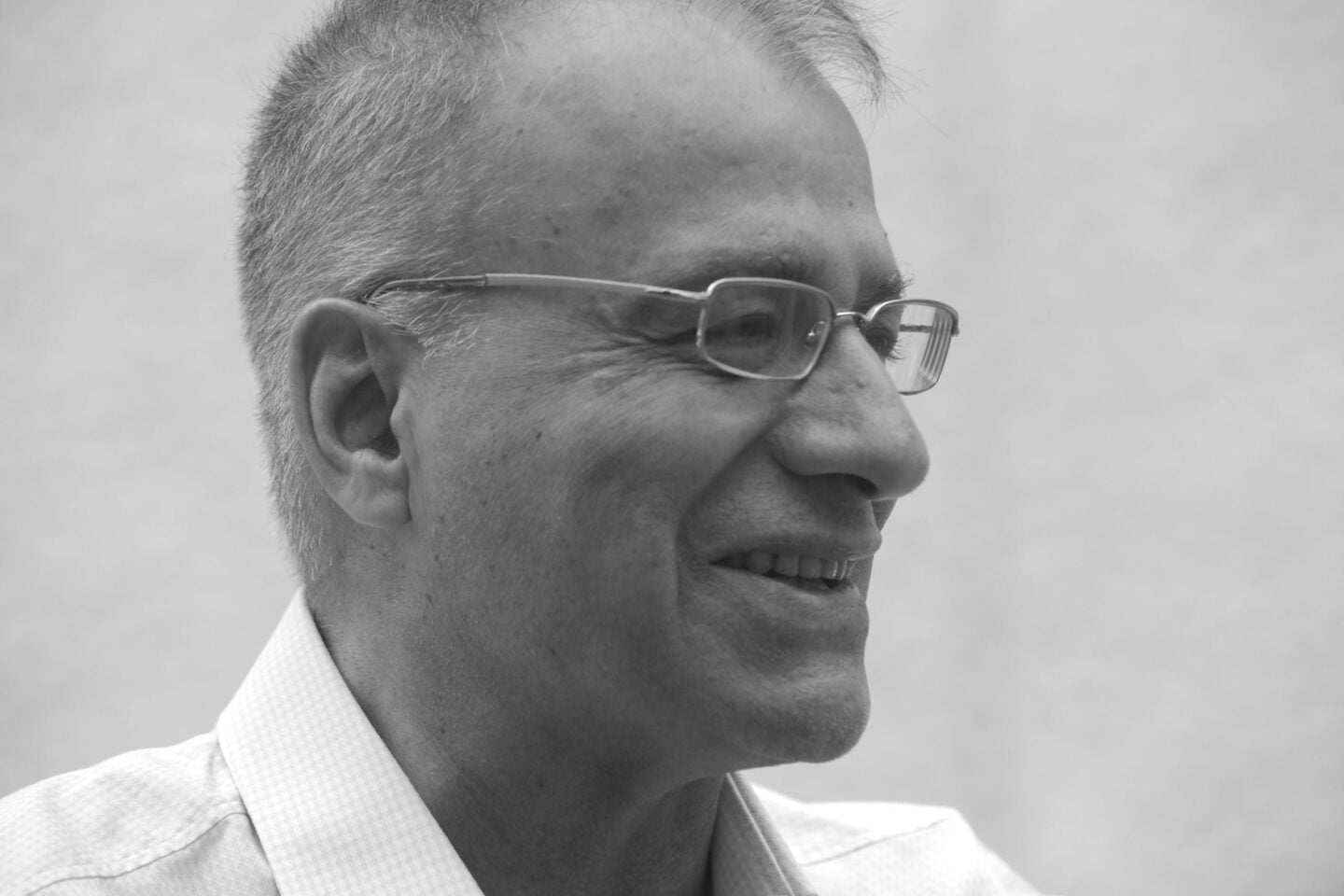
Amir Hassan Cheheltan
Amir Hassan Cheheltan was born in Tehran in 1956. After the Islamic Revolution, he traveled to Britain to complete his studies. During the war between Iran and Iraq, for which he was conscripted after his return, he wrote his first novel, »The Mourning of Qassem«. The book was only published in 2003, 20 years after it was completed. After receiving a grant from the International Parliament of Writers, he fled Iran in 1999 to avoid the wave of violence against intellectuals and lived in Italy for two years.
Cheheltan has published many novels, some of which are banned in Iran, and many of which have been translated into English, German, Italian, Norwegian, Lithuanian, Arabic, and Hebrew. His work often comes into conflict with censors and has been subject to numerous restrictions and re-publications. In his works, everyday life in Iran is a central theme set against the background of the country’s history and the interactions between religion, the state, and modernization. The novel »Tehran, City Without a Sky« [2001] tells of the rise of a man from brutal crony of a brothel-owner to a businessman who supports the Islamic Revolution and makes money on the black market. The protagonist in »Iranian Dawn« [2005] is an Iranian Communist who emigrates to the Soviet Union. The novel was nominated for the Iranian National Book Award, which Cheheltan refused because of the hard censorship in the country.
»Tehran, Revolution Street« [2009] was his first major work to be published in German. The protagonist is a surgeon who specializes in hymen repair. The rift between tradition and modernity that divides Iran also affects his clinic, where operations are carried out to eliminate traces of sexual intercourse in order to satisfy the traditional sense of honor still present in society. Cheheltan’s 2015 historical novel »The Calligrapher of Isafahan«, set in 1722, tells of the downfall of the Safavids and the siege of Isfahan by the Afghans. According to the »FAZ«, Cheheltan proves himself to be a »master at letting his characters plunge into a modern no-man’s-land and confronting them with their untenability and naked carnality«. In »The Circle of Literature Lovers« [2020], Cheheltan reminisces about the evenings he spent in his parents’ house delving into classical Persian literature. Cheheltan describes the role of literature when life was under the spell of a repressive state and social constraints.
»A Love in Cairo« [2022] is about an Iranian ambassador in Cairo who falls in love with a Jewish woman who has converted to Islam. The novel examines the roots of the Middle East conflict.
Cheheltan has received numerus scholarships [DAAD, Heinrich Böll Foundation, Villa Aurora, Ledig House, and others] and was a board member of Iran Writers Association. He teaches creative writing, publishes regularly in newspapers, and now lives with his wife in Tehran.
Date: 2022
Teheran. Revolutionsstraße
Kirchheim
München, 2009
[Ü: Susanne Baghestani]
Amerikaner töten in Teheran
C.H. Beck
München, 2011
[Ü: Susanne Baghestani]
Teheran, Stadt ohne Himmel
Eine Chronologie von Albtraum und Tod
C.H. Beck
München, 2012
[Ü: Kurt Scharf]
Iranische Dämmerung
Kirchheim
München, 2015
[Ü: Jutta Himmelreich u. Farsin Banki]
Der Kalligraph von Isfahan
C.H. Beck
München, 2015
[Ü: Kurt Scharf]
Teheran Kiosk
Kirchheim
München, 2016
[Ü: Susanne Baghestani, Kurt Scharf u. Jutta Himmelreich]
Der standhafte Papagei
Erinnerungen an Teheran 1979
Matthes & Seitz Berlin
Berlin, 2018
[Ü: Jutta Himmelreich]
Teheran, Apokalypse
Ein Roman über den Hass in sechs Episoden
C.H. Beck
München, 2018
[Ü: Susanne Baghestani u. Kurt Scharf]
Der Zirkel der Literaturliebhaber
C.H. Beck
München, 2020
[Ü: Jutta Himmelreich]
Eine Liebe in Kairo
C.H. Beck
München, 2022
[Ü: Jutta Himmelreich]
